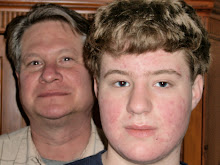Title: Unforgiven
Released: 1992
Genre: Western with guilt pangs
Notable for: Best picture Oscar
Coolest thing Clint does: Shoots Gene Hackman dead on a barroom floor
After one full year and 47 movies, we have watched Clint Eastwood drop agent orange on a giant spider, shoot everyone in sight, sing to trees and share a beer with an ape.
We've paid our dues to reach the official start of Clint's Glory Years.
"Unforgiven" is the movie that made it impossible for snooty people to continue regarding Clint as a cinematic joke. It won the best picture Oscar for 1992, and Clint won best director and was nominated for best actor.
Snooty we are not. Like a surprising number of Clint's fans, we're not even convinced "Unforgiven" is his best western.
"The Outlaw Josey Wales" is impossible to beat. Andrew is also highly fond of Clint's spaghetti westerns and Brad remains overly awed by "High Plains Drifter."
On the other hand, "Unforgiven" beats the crap out of nearly all other best-picture winners.

Clint plays a reformed mad-dog killer who reunites with an old partner and a punk kid for one last round of assassination. They ride into a dusty town to kill two cowboys for reward money.
Both cowboys end up deader 'n hell, but the real conflict comes between Clint and the town sheriff, a sadistic law-and-order type who wants no assassins in his town.
Like many of Clint's westerns, it is difficult to tell good guys from bad. The paid killers have good points and the sheriff, played by Gene Hackman, is a vicious thug.
None of that sounds unique for Clint's sort of movie, but "Unforgiven" has two things his earlier westerns lacked.
First, Clint assembled some incredibly distinguished actors. Three actors nominated for best-actor Oscars in the previous four years were cast in supporting roles to Clint, the old grunt-and-stare master. Those three were Hackman, Morgan Freeeman and Richard Harris, although Harris was never in the same scene with Clint.
Just by attracting and paying those guys, it was obvious Clint wanted "Unforgiven" to be taken as a very serious movie. Hackman would win a supporting-actor Oscar.
Second, and undoubtedly more important to voters of the academy, this is not merely another violent western. For the first time in 47 movies, Clint is full of guilt and remorse for his homicidal violence, which allowed "Unforgiven" to be called anti-violent.
Clint and his gang of killers are haunted by their deadly acts. As a nice aside, one character is a dime-novel writer who glorifies western gunfighters while all around him killing is shown an ugly thing without glory. The best example comes when one cowboy is ambushed in an outhouse and shot three times while taking a shit.
The climactic scene comes as Clint puts a finishing bullet into Hackman while the lawman is wounded and bleeding on a barroom floor.
"I don't deserve this," Hackman says. "To die like this. I was building a house."
"Deserve's got nothing to do with it," Clint says.
"I'll see you in hell, William Munny," Hackman says.
"Yeah," Clint says in that whispery voice. Then he pulls the trigger.
Come to think of it, maybe "Unforgiven" is Clint's best western.
Next up: "In the Line of Fire."







